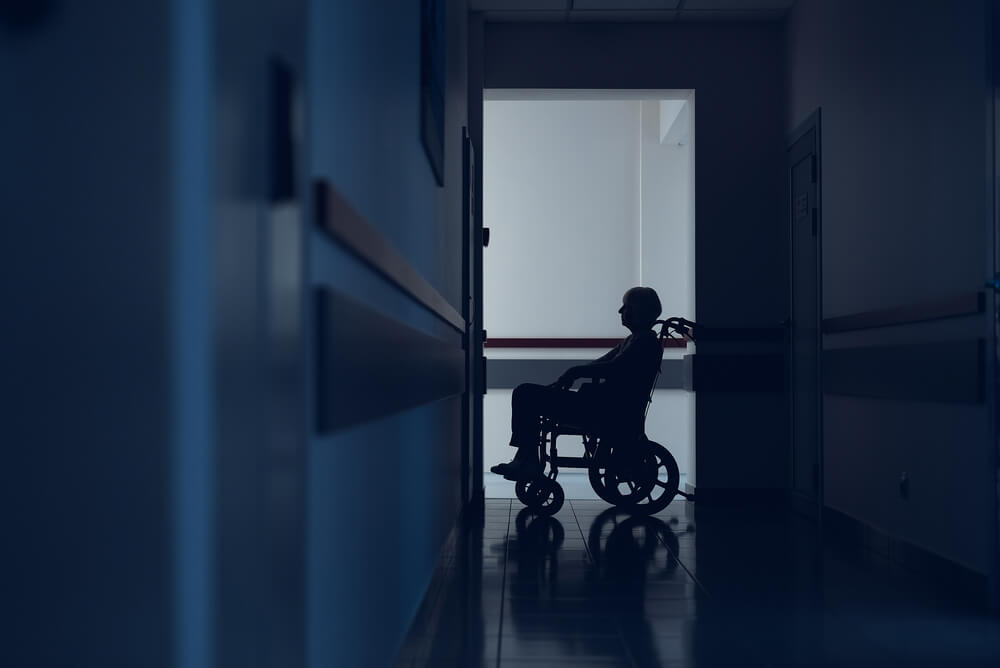One of the toughest decisions you make could involve placing a loved one in a nursing home. Although your decision rests on genuine concerns for your family member, things may not turn out as expected. Neglect at nursing homes shows signs of increasing, and understanding how to prove nursing home negligence could become an issue.
The team at Koonz, McKenney, Johnson & DePaolis, LLP, can help you protect your loved one’s right to dignity and adequate care.
Knowing How To Prove Nursing Home Negligence Begins With Recognizing the Signs

You’ll need to be able to recognize the warning signs before you can prove a nursing home neglected your loved one’s needs. Start by keeping your eyes and ears open when you visit your elder family member. Give serious consideration to what he or she says.
Speaking with the facility’s staff members that you come across during your visits can also help you assess the care you can expect them to provide your loved one.
Verbal Signs of Negligence
Some of the verbal clues of a less-than-professional attitude among nursing home staff members could include:
- A disrespectful tone or one that conveys annoyance toward your loved one or other residents
- A lack of a response to issues of conflicts that arise between residents
- Ignoring requests from your family member or other residents
- Improperly administering medications
Whether you hear such comments first-hand or if your loved one relates them to you, they could be warning signs of negligence issues.
Visual Signs of Negligence
Some of the visual clues that could indicate negligence include:
- Your loved one shows signs of poor personal hygiene.
- Bedsores are beginning to develop.
- Bed linens appear soiled or smell bad.
- Your loved one shows unexplained signs of malnutrition or weight loss.
Although a seasoned working knowledge of how to prove nursing home negligence is part of the skill set of experienced attorneys, it is often the victim’s family members that act as an early-warning system. The harm that a nursing home’s neglect could inflict on your loved one could be physical, emotional, or both.
When nursing home negligence results in harm to an elder family member, you may file a lawsuit against the facility to obtain compensation for the physical or emotional suffering your loved one endured.
The Four Elements Needed To Prove Negligence
If you intend to prove that a nursing home neglected your loved one’s needs and are seeking compensation for the harm caused, you will need to show the four elements of negligence:
Duty of Care
When a nursing home accepts a resident, a duty of care exists in which the facility must provide a professional standard of healthcare. This duty of care includes meeting the resident’s basic needs such as hygiene, food, water, and the required and proper medical treatments as needed.
Breach of Duty
When a nursing home doesn’t meet its legal obligation to provide the level of care required by your loved one, a breach of duty occurs. In some cases, the negligence that breached the duty of care could be the facility’s failure to meet the mandated staffing levels required for its number of residents.
Causation
The fact of a breach of duty alone may not prove negligence and win your case unless it’s shown that it was the actual cause of the harm your family member suffered. You will need to show that the nursing home’s actions or a failure to act was the direct cause of the physical or emotional harm.
Damages
To win a negligence suit against a nursing home, you need to prove that your loved one actually suffered harm — referred to as damages — as a direct result of the facility’s breach. Proving that damages occurred in a nursing home negligence suit typically requires strong evidence of harm.
A skilled lawyer will know how to prove nursing home negligence by showing a jury how all four elements apply in your case.
Compiling Evidence To Prove Neglect and Damages

Medical documentation, personal notes, photos, and eyewitnesses can help provide the evidence needed to persuade a jury to rule in favor of a harmed nursing home resident. When other family members or friends with an awareness of how to prove nursing home negligence visit your loved one, they could also keep their eyes and ears open.
It can prove helpful to check in with others who visit your loved one and compare notes if you suspect a nursing home is neglecting your family member’s needs. It’s a good idea to maintain a journal or diary in which you record the dates and sources of all your collected information. Photos can prove especially helpful if you notice bedsores or unexplained bruises.
When you work with a skilled nursing home attorney, your compiled notes and photos can help build a compelling case to present to a jury. Your attorney can obtain sworn statements from witnesses, such as visitors and other residents, and apply other investigative strategies, which may include bringing in expert witnesses from the medical field.
Their expert testimony could show the extent of the physical or emotional harm your loved one suffered.
Work With a Law Firm That Knows How To Prove Nursing Home Negligence
If you believe that a loved one suffered physical or emotional harm through a Maryland, Washington, D.C., or Virginia nursing home’s neglect, consider taking the matter seriously. Things could get worse if you dismiss the issue as something that might clear up on its own.
Although initiating a lawsuit against your loved one’s nursing home is a tough decision to make, it could be in your family member’s best interests to obtain the advice of an attorney who can help you prove nursing home negligence.
For over 40 years, the law firm of Koonz, McKenney, Johnson & DePaolis, LLP, has been helping harmed individuals and their families win compensatory justice for their physical and emotional suffering.
A no-fee consultation with a nursing home neglect attorney can help you decide if or when you should proceed with legal action. Contact us now and schedule an appointment to learn how we can help you and your loved one.

